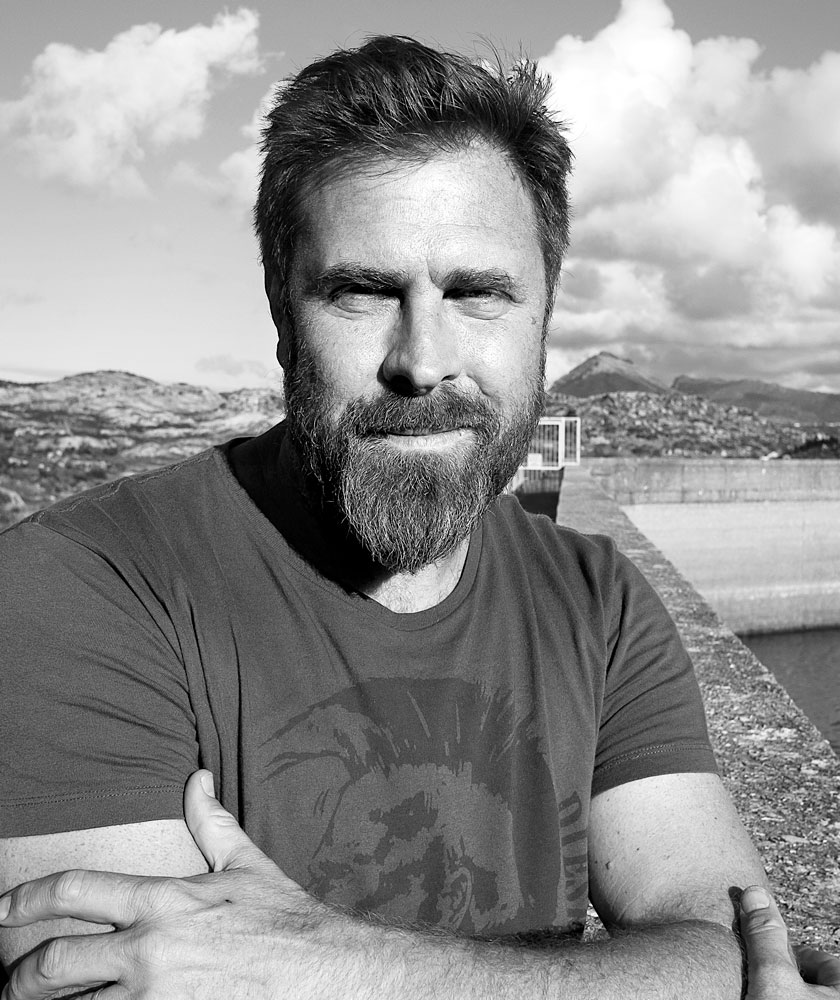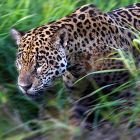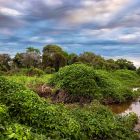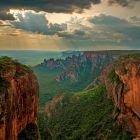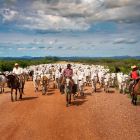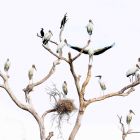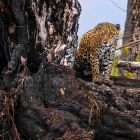Brent Stirton
Pantanal: An Endangered Eden
“In this essay, I wanted to look at the various elements
Brent Stirton
that make up the Pantanal ecosystem. Especially
its interdependence with the Amazon rainforest basin,
which is also threatened by deforestation and agriculture.“
he Pantanal nature reserve, covering 200,000 sq. km of floodplains, is the largest wetland on the planet. It is so vast that when European explorers first encountered it in the 17th century, they thought it was an inland sea in the heart of Brazil. It is the size of a small country and extends over international borders into neighbouring Paraguay and Bolivia. Marked by very distinct wet and dry seasons, the Pantanal transforms throughout the year: in the space of just a month, a filigree of sinuous rivers bordered by verdant vegetation can become a maze of arid valleys punctuated by rare watering holes that attract exceptionally diverse local fauna.
But this tropical paradise is under threat. Here, the effects of the climate upheaval our planet is experiencing have been much more immediate and striking than elsewhere. In 2020, a particularly severe dry season led to a wave of devastating wildfires that ravaged nearly 30% of the Pantanal. The cost was dizzying: 17 million animals died in the flames. The victims of these dramatic fires included the planet’s last jaguars, whose population was estimated to be around 400 individuals before the fires. Slower and more insidious is the damage the mining industry is wreaking on the region’s water supply. Finally, there are problems related to the cohabitation of humans and wild animals.
Photojournalist Brent Stirton spent several weeks in Brazil, in the heart of the Pantanal, in order to bear witness to the fragility of this natural sanctuary. A regular contributor to National Geographic and the Figaro Magazine, frequently recognised for his long-form investigative work documenting the exploitation of nature and natural resources, Brent Stirton brings us a photo essay full of hope about this oasis of life which we must come to know better in order to better protect it.
In partnership with the Yves Rocher Foundation, which funded this project as part of its “In the Name of Biodiversity” photography campaign.
INFO POINT
Tourist Information Baden
Brusattiplatz 3, 2500 Baden bei Wien
Open during the photo festival:
Monday – Friday: 10.00 – 16.00 hrs
Saturday: 13.00 – 17.00 hrs (June – August)
Saturday: 13.30 – 16.00 hrs (September – October)
Closed on Sundays and public holidays!
Tel: +43 (0) 2252 86800 600
info@baden.at
Festivalbüro La Gacilly-Baden Photo
Tel: +43 (0) 2252 42269
festival@lagacilly-baden.photo

